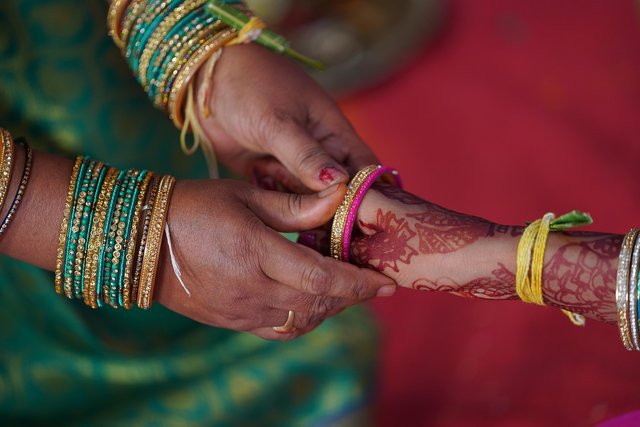The April contest #2 by the sduttaskitchen|Child marriages!
What is more fun than seeing our children or younger siblings playing happily with their friends at school? Getting to know new friends, sharing food, playing, learning, it feels warming to see them grow and develop. Unfortunately, it feels like a privilege for some people because child marriage still exists and we don't know how long it will last.
Child marriage is those who marry either officially or unofficially under the age of 18. Many factors underlie someone to put a child at risk of marriage, including poverty, the perception that marriage will provide 'protection', family honor, social norms, customary or religious laws that justify the practice, inadequate legislative frameworks, and the internal circumstances of a country.
The practice of child marriage, although more common among girls than boys, occurs regardless of gender. Child marriage usually occurs when society generalizes the practice on the pretext of heredity. The two children do not know each other and the majority do not want to be married because they still want to play with their friends.
Something that is easy to digest, able to reach a level of society, is the embodiment of the concept of dogmatization. No need to bother thinking about change or at least innovation, society only needs to hear the dogma that continues to be conveyed from when they were little and will just obey if told to do this and that based on local authorization.
This is what perpetuates the practice of child marriage. Education related to human rights has not reached all levels of society or some people who have heard about it choose to ignore it because they think it is not their problem. There is no collective awareness to see that this is not just a trivial discussion because something that concerns a person's future is never that trivial.
Poor countries and families have few alternative options for caring for their daughters. Child marriage is most common in the world’s poorest countries and is often concentrated among the poorest households within those countries. It is closely linked to poverty and low levels of economic development. In families with limited resources, child marriage is often seen as a way to secure a future for their daughters. But girls who marry young are more likely to be poor and stay poor.
Child marriage is not a solution to eradicate poverty, on the contrary, it perpetuates poverty. Those who marry under the age of 18 on average do not get enough access to education to study so that child marriage is the only way out of the abyss of poverty according to them.
Marriage does not reduce the burden but divides it into 2. You accept your partner's shortcomings and your partner accepts and complements your shortcomings. In the case of child marriage, what can they do? Emotional maturity or financial stability are not even there. So what else is expected from child marriage?
Child marriage is not a tradition but a manifestation of selfishness and the inability of parents to provide the best facilities for their children. Child marriage is violence against the child itself. Children are not and will never be ready to marry until the time comes for them to marry. Let this tradition be buried as a memory rather than sacrificing the future of children who know nothing.
